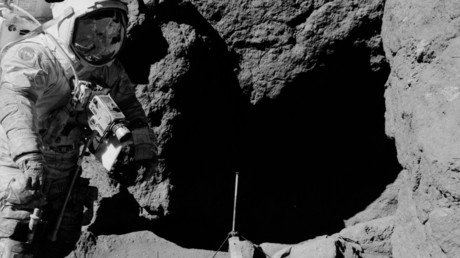Gold in, dollar out: Russia set to become world’s 4th biggest reserve holder

Russia is set to replace Saudi Arabia as the fourth biggest holder of foreign currency reserves, precious metals, and other securities, under the policy of ridding its economy of dollar-denominated assets due to US sanctions.
The nation’s international reserves amounted to around $518 billion as of August 1, according to data by the Central Bank of Russia. The figure has been growing significantly for the past four years and is projected by Fitch Ratings to keep rising to $537 billion by the end of 2019, and $591 billion by 2021.
Also on rt.com Russia’s credit rating soars to pre-sanctions level with reserves projected to reach $600 billionThe Kingdom of Saudi Arabia has around $527 billion at its disposal, according to Bloomberg news agency’s estimations.The top three countries with the largest foreign exchange reserves are China, Japan, and Switzerland.The Russian Central Bank underwent a major shift in its policy last April, when it started to drastically reduce its holdings in dollar-denominated assets in response to sanctions pressure from Washington; it also actively invested in gold to further lessen dependence on the US dollar. This led to Russia becoming the top buyer of the precious metal in 2018. The country continued with the same course in 2019, securing the position as the world’s top gold buyer in the first quarter of 2019.
The price of gold itself rallied last month, breaking through a record $1,400 per-ounce mark for the first time since 2013. Among the factors behind this were expectations of lower interest rates, and political uncertainty due to a recent escalation in the US-China trade war, according to a World Gold Council (WGC) report.
Also on rt.com Global central banks boost gold reserves by record $15.7 billion in shift away from US dollarBoth gold and foreign currency reserves are managed in Russia by the central bank and include foreign currency kept in accounts with foreign banks, securities nominated in these currencies, as well as monetary or physical gold. The central bank buys foreign currency for reserves in the open market from exporters. Previously, gold reserves were used to influence the ruble exchange rate through foreign exchange interventions, but in 2014 the central bank decided to abandon this practice.
For more stories on economy & finance visit RT's business section















